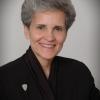See for Yourself - In the 1972 hit movie "What's Up, Doc?" Judy Maxwell (Barbra Streisand) is talking with Howard Bannister (Ryan O'Neal) and says, "I know I'm different, but from now on I'm going to try and be the same." "The same as what?" asks Howard. "The same as people who aren't different."
Beh Paw Gaw and her family spent 10 years in a Thai refugee camp after escaping war in Burma. They left a home with plenty of space to grow mangos, coconuts, bananas and papayas for a household where the nearest neighbor was only one step away. The U.S. government resettled Gaw, her husband, Ta Mla, and their seven children in Kansas City in 2007. Ta Mla found work at a factory in St. Joseph, Missouri. Beh Paw needed a flexible job she could work while raising young children that could help pay the rent when her husband's work was unstable.
From NCR Today - Starting March 3, Sr. Rose Pacatte, NCR’s own film critic, will be hosting a program on Turner Classic Movies (TCM) featuring 27 films that were influenced by the Catholic Legion of Decency.
Republican presidential front-runner Donald Trump convincingly won the Nevada caucuses last night but he is still struggling in what might be called "the Pope Francis primary."
It is 6:30 a.m., January 21, and I am standing in the dark beside a Swiss Guard, a heavy grey cape covering his colorful uniform. "There," I say, pointing to my name on his list. I show him my passport. Following his directions, we walk over black shiny cobblestones around a towering side wall of St. Peter's looking for the entrance to the chapel where Pope Francis offers his daily, private Mass.
GSR Today - This was my first trip to the Highlands of Vietnam, a beautiful, lush forest area of the country where Lovers of the Holy Cross of Qui Nhon serve many villages. One of their most unique ministries I discovered was dental missions.
As I entered into my Lenten journey, I found myself hoping for a personal crisis. I smile. I'm 52 years old and, like every religious, have weathered many a crisis in my religious life: the garden variety of troubles typical of the formative years, more disruptive crises of serious health issues a year after profession, followed by two decades of emotional upheaval and depression as a result. Then this past year was marked by a painful self-questioning about where I was going with my life.
GSR Today - During Lent, many of us turn inward — reflecting on our own mortality and sinfulness — but it can also be an opportunity for us to look outward and lament with the "least of these." What are you reflecting on this Lenten season?
Sisters in Accra, Ghana, run an empowerment program for young girls working as porters in one busy city market. Sr. Angelina Gerharz, 72, a Holy Spirit Sister who is originally from Germany but has been in Ghana for 48 years, founded the Porter Girls Project in 2010.







